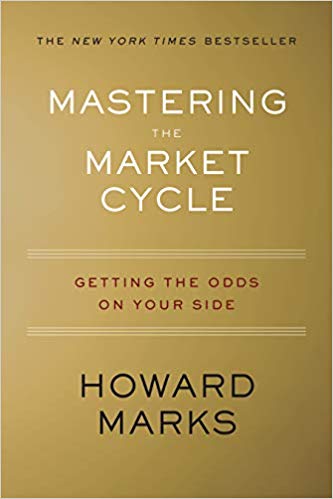Howard Marks is an investor, writer, and author. After working for Citibank early in his career at senior positions, he joined TCW in 1985 and created and managed the High Yield, Convertible Securities and Distressed Debt groups. He left TCW in 1995 and co-founded Oaktree Capital Management. Mr. Marks net worth is $2.2 billion as of 2019. He was ranked the #374 richest person in the United States. He owns approximately 10% of Oaktree Capital Management, which created the majority of his net worth. He is well known for his “Oaktree memos” to clients which give investment strategies and updates on the economy.He is a published author of three books on investing.
“Prices are too high” is far from synonymous with “the next move will be downward.” Things can be overpriced and stay that way for a long time . . . or become far more so.” –
Trends tend to persist for a long time before they finally reverse direction. Selling short into an uptrend is usually not a good strategy.
“We have to practice defensive investing, since many of the outcomes are likely to go against us. It’s more important to ensure survival under negative outcomes than it is to guarantee maximum returns under favorable ones.” –
Managing the risk of ruin is more important than maximizing gains. Drawdowns are mathematically difficult to get out of, and taking on too much risk will eventually ruin you.
“Investment success doesn’t come from “buying good things,” but rather from “buying things well.” –
Timing your buying is more important than the quality of what you buy.
“There’s a big difference between probability and outcome. Probable things fail to happen—and improbable things happen—all the time.” That’s one of the most important things you can know about investment risk.” –
Anything can happen at any time, so plan your risk management accordingly.
“Here’s the key to understanding risk: it’s largely a matter of opinion.” –
Everyone has their own risk tolerance based on their return goals.
“The biggest investing errors come not from factors that are informational or analytical, but from those that are psychological.” –
Fear, greed, and ego cause the biggest mistakes in the market become they drive bad impulses.
“Being too far ahead of your time is indistinguishable from being wrong.” –
You must not only be right, but also be right at the correct time. Calling for a trend too early or too late is the same as being wrong because you will not profit from it.
“Everything you needed to know in the years leading up to the crash could be discerned through awareness of what was going on in the present.” –
Market crashes can’t be predicted in the future but the current price action and economic numbers can give you clues as it approaches.
“Selling for more than your asset’s worth. Everyone hopes a buyer will come along who’s willing to overpay for what they have for sale. But certainly the hoped-for arrival of this sucker can’t be counted on. Unlike having an underpriced asset move to its fair value, expecting appreciation on the part of a fairly priced or overpriced asset requires irrationality on the part of buyers that absolutely cannot be considered dependable.” –
As prices get far extended from fundamental values the odds of a reversal increase as the buyers and holders become less dependable.
“Buying something for less than its value. In my opinion, this is what it’s all about—the most dependable way to make money. Buying at a discount from intrinsic value and having the asset’s price move toward its value doesn’t require serendipity; it just requires that market participants wake up to reality. When the market’s functioning properly, value exerts a magnetic pull on price.” –
Buying oversold undervalued assets create a good risk/reward ratio and a high probability they will return to their intrinsic value.
“The process of intelligently building a portfolio consists of buying the best investments, making room for them by selling lesser ones, and staying clear of the worst.” –
Buy the best stocks, sell the losing stocks, and avoid the worst stocks.
“There are three ingredients for success—aggressiveness, timing and skill—and if you have enough aggressiveness at the right time, you don’t need that much skill.” –
Big position sizing in the right market at the right time creates market success.

